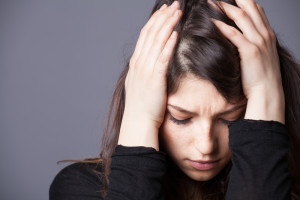Whether you suffer from a mental disorder or need help coping with stress, relationship troubles, substance abuse, or the loss of a loved one, psychotherapy can help. Psychotherapy is a collaborative treatment between a therapist and client that involves identifying and addressing the thoughts and behaviors that are preventing you from living a happy and healthy life. The treatment can help you overcome your problems and leaves you with the skills you need to better cope with future challenges.
For the most effective treatment, you need to choose the right psychotherapist. Here are three things to consider:
Consider Your Issue
Psychotherapy is a very diverse field. Typically, therapists specialize in specific conditions and problems. Some psychotherapists focus on issues like depression, anxiety, and/or post-traumatic stress disorder, while others specialize in helping people improve their relationships or cope with loss. It’s important to choose a therapist who has ample experience in helping people overcome your issue.
Consider Their Demographic
In addition to specific issues, therapists tend to specialize in particular demographics. Some therapists work with families and couples, while others work with individuals. Also, a psychotherapist may focus on a certain age group, such as children, teens, adults, or seniors.
Consider Their Approach
As previously described, psychotherapy is very diverse. There are many different schools of thought, so it’s important to know which orientation a psychotherapist specializes in. For instance, Psychotherapist Stuart MacFarlane is a Jungian analyst who works with his clients to bring elements of the unconscious psyche into the conscious mind to achieve wholeness and self-realization. Jungian analysis involves working with your dreams to allow your unconscious mind into enlighten your consciousness to discover meaning and new insights and perspectives.
These are three important things to consider when choosing a psychotherapist. By considering these factors, you can select the psychotherapist that is right for you.

 Autumn is in full swing and that means cooler temps, falling leaves and shorter days are upon us. As the season begins to progress and we see even more changes, some of us may begin to feel the ‘blues’ because we are spending less time outdoors, which means we aren’t soaking in as much vitamin D from the sun and that can affect us in a few different ways. Our emotions may change but when it gets to the point where we are feeling depressed it could be due to Seasonal Affective Disorder.
Autumn is in full swing and that means cooler temps, falling leaves and shorter days are upon us. As the season begins to progress and we see even more changes, some of us may begin to feel the ‘blues’ because we are spending less time outdoors, which means we aren’t soaking in as much vitamin D from the sun and that can affect us in a few different ways. Our emotions may change but when it gets to the point where we are feeling depressed it could be due to Seasonal Affective Disorder.